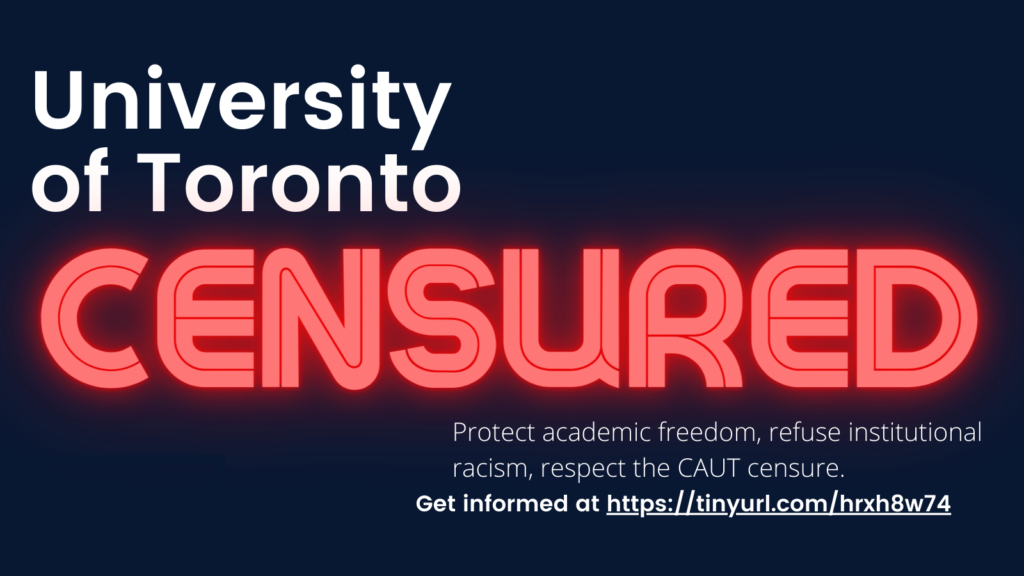 Science for the People express our support for Dr. Valentina Azarova and for the Canadian Association of University Teachers’ (CAUT) censure of the University of Toronto.
Science for the People express our support for Dr. Valentina Azarova and for the Canadian Association of University Teachers’ (CAUT) censure of the University of Toronto.
As detailed by CAUT in this report explaining the decision to censure, “Dr. Azarova specializes in legal and human rights issues arising from immigration detention, the arms trade, and
occupation and annexation. As part of this latter work, she has written several articles and book chapters on the application of international law and treaty obligations within the context of Israel’s occupation of the Palestinian Territories.“
The university rescinded its offer to hire Dr. Azarova as the next Director of the International Human Rights Program, despite the fact that, as concluded in the Cromwell Report, she was the “strong, unanimous, and enthusiastic first choice of the selection committee.” The report, in its attempt to exonerate the administration, all but confirmed that there was external influence on the ultimate decision made by the Dean of Law; it is now evident that an alumnus of and major donor to the law school interfered with the decision to hire Dr. Azarova, privately expressing concerns over Dr. Azarova’s past work on Israel’s abuses in occupied Palestine. Full details of the chronology of events leading to this decision can be found here and here.
Science for the People is deeply concerned by this blatant violation of academic freedom, and call on the University of Toronto and its Faculty of Law to immediately reinstate Dr. Azarova’s offer. We also affirm that this incident is part of a broader campaign to silence, harass, and intimidate academics, overwhelmingly Arab and Muslim, who advocate for the Palestinian cause. As Palestine Legal, amongst others, have documented in detail, there is a widespread effort to chill and censor advocacy for the Palestinian people on university campuses in the US. Dr. Azarova’s case is an example of similar efforts occurring in Canada. In the US, in 2020 alone, Palestine Legal “responded to 213 incidents of suppression of U.S.-based Palestine advocacy”. This campaign cannot be separated from the colonial structures to which Palestinian scholars are themselves subjected, and that deny Palestinians their right to academic freedom and mobility.
These attacks do not fall on deaf ears. Scholars and activists continue to organize against censorship and retribution. Initiatives include Against Canary Mission, Palestine Legal, and Center for Constitutional Rights.
Science for the People urges all academics to engage with such organising efforts and to pledge to respect the CAUT censure of the University of Toronto until the conditions specified by CAUT are met and specifically until an offer to direct the IHRP is made to Dr. Azarova. If the University of Toronto is interested in upholding the principle of academic freedom, extending such an offer to Dr. Azarova is a necessary first step.


 Science for the People express our support for Dr. Valentina Azarova and for the Canadian Association of University Teachers’ (CAUT)
Science for the People express our support for Dr. Valentina Azarova and for the Canadian Association of University Teachers’ (CAUT)